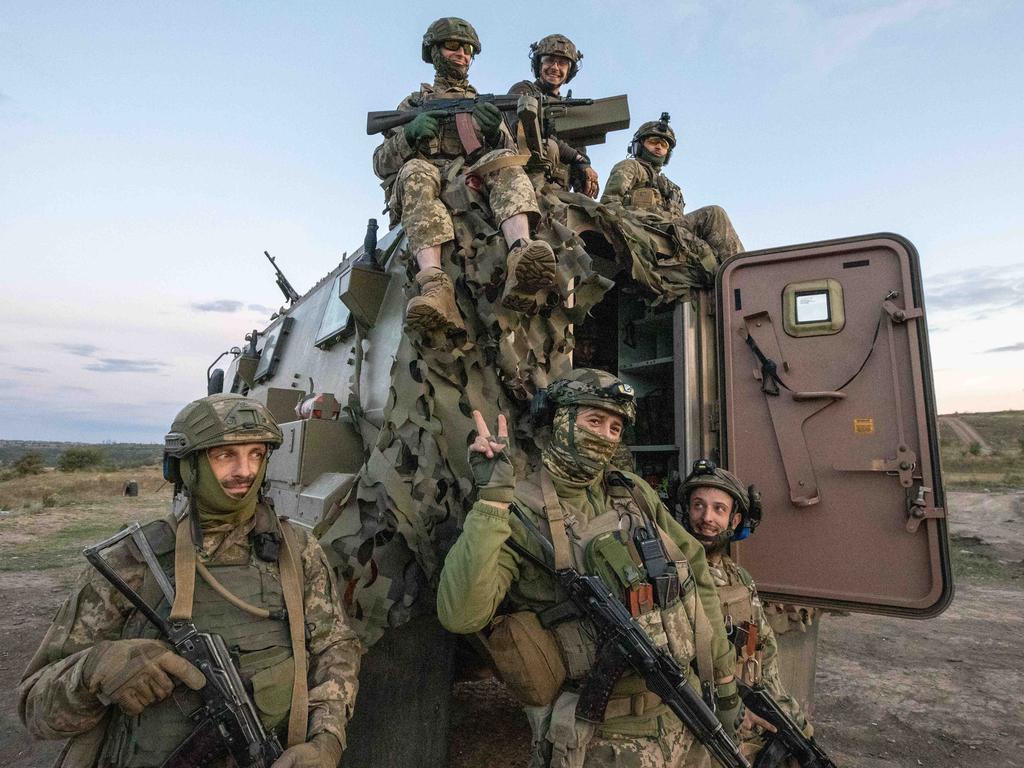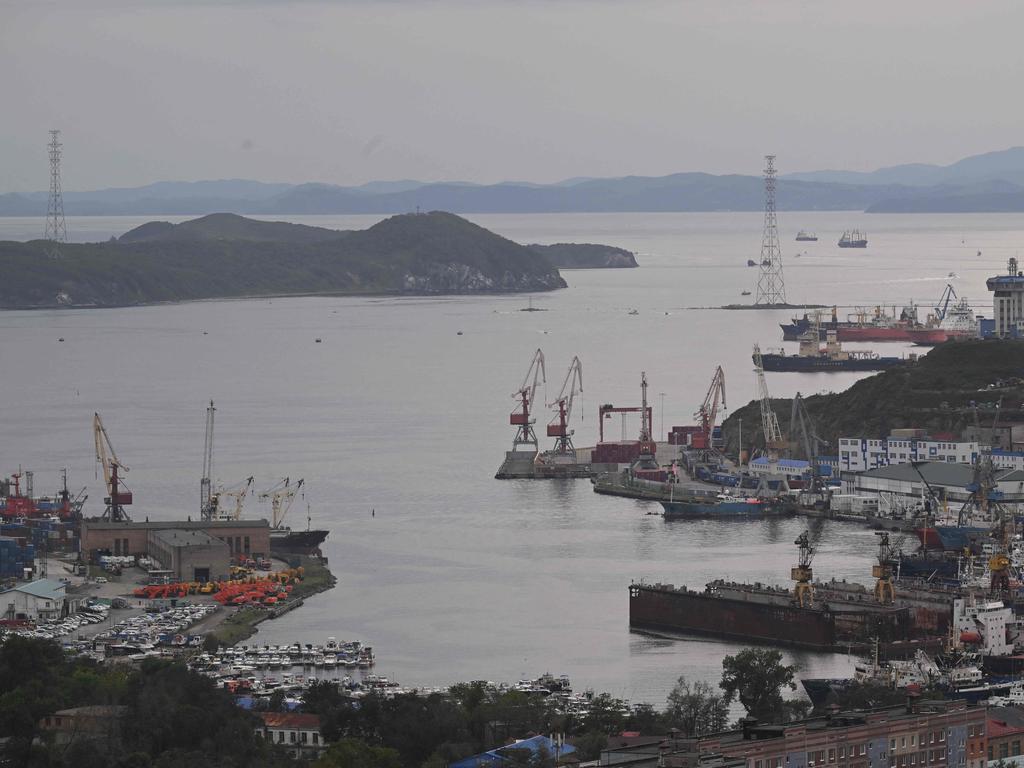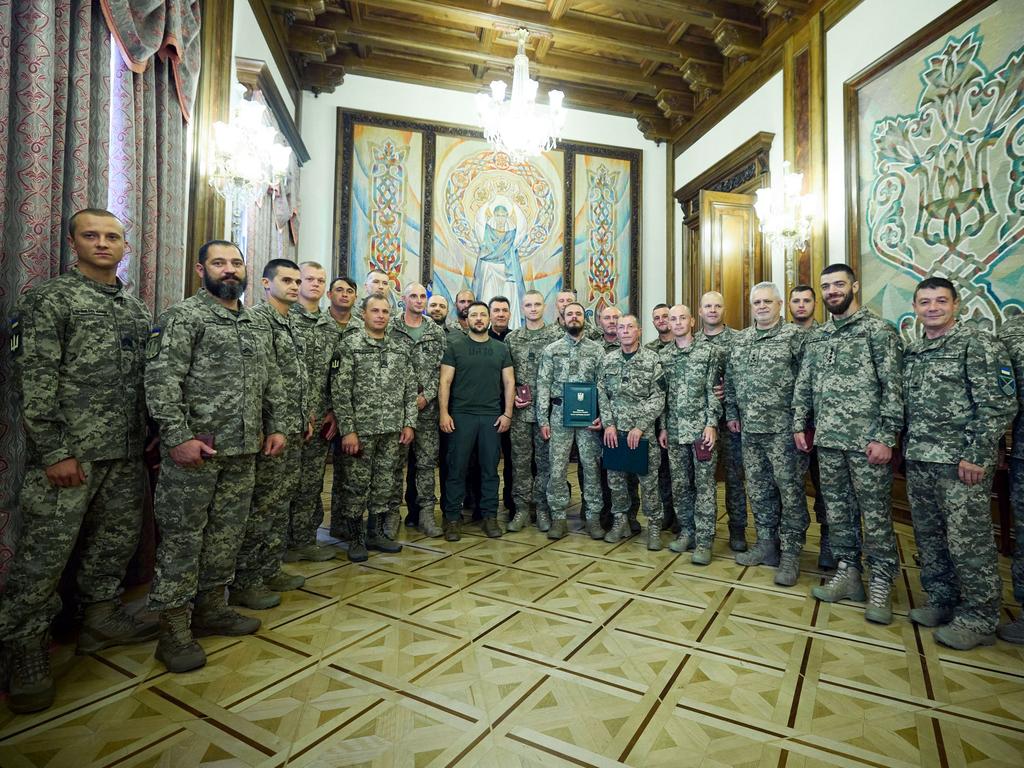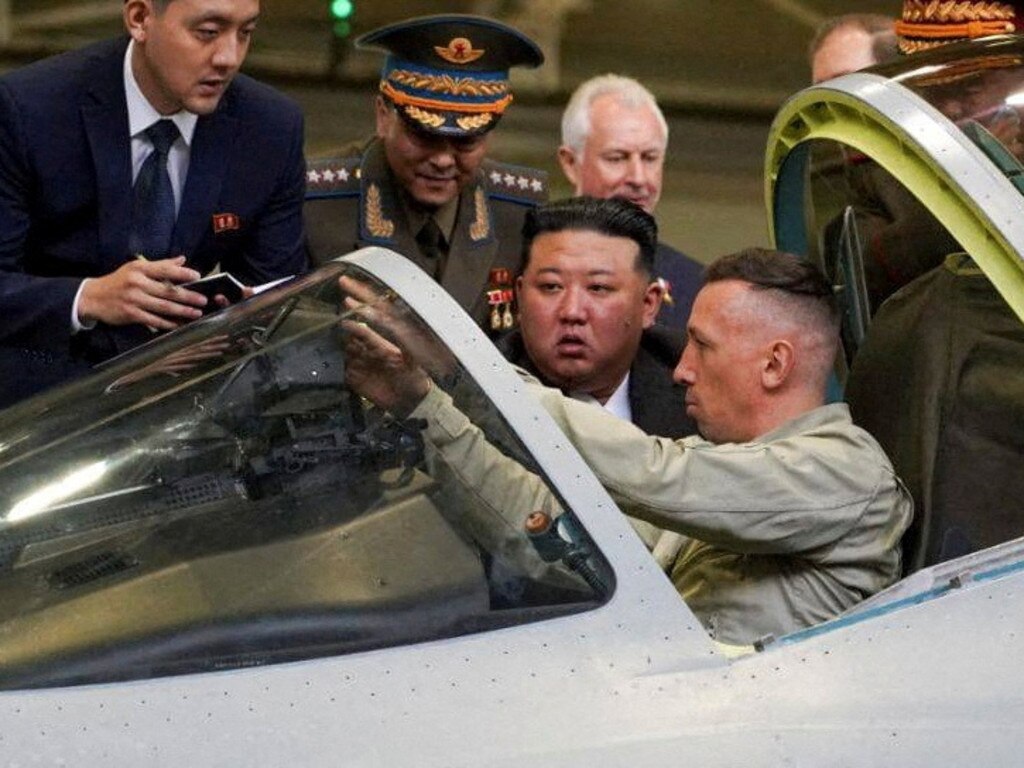Tension between Ukraine and ally Poland over grain exports vexes EU
The decision to lift a ban on imports into European Union countries has been immediately rejected by the bloc’s eastern flank.

Russia’s blockage of Ukrainian food exports has become a painful political issue next door in the European Union, where Brussels decided Friday to end EU restrictions on Ukrainian grain purchases but Poland immediately rejected the decision.
The dispute over allowing Ukrainian grain to be sold in Poland and four other Eastern European EU countries has divided the bloc, rekindled long-running tensions between Brussels and Warsaw and driven a wedge between Ukraine and Poland, one of Kyiv’s staunchest allies throughout the war.
Friday’s decision by the European Commission, the EU’s executive body, came after weeks of negotiations aimed at finding a compromise. Ukraine was threatening to take the bloc to the World Trade Organisation to sue for compensation. Poland and Hungary had warned they would act alone to keep out cheap Ukrainian grain.
Complicating negotiations have been coming elections in Poland, where the ruling Law and Justice Party has campaigned heavily in the countryside with promises to protect Polish farmers already hurt by the influx of Ukrainian grain caused by Russia’s recent withdrawal from a year-long grain deal.
“We will extend this ban, despite their disagreement,” said Prime Minister Mateusz Morawiecki, speaking at a campaign rally in northeastern Poland. “We will do it because it is in the interest of the Polish farmer.”
Under the EU’s new arrangements, Ukraine agreed to take swift steps to prevent a surge in grain exports to the bloc. The Commission agreed to refrain from imposing restrictions as long as the Ukrainian measures were effective.
EU member states are supposed to abide by trade decisions by Brussels. EU officials had said similar unilateral bans on grain imports by Poland and its neighbours in the spring appeared to breach EU law.
Ukrainian President Volodymyr Zelensky said Friday evening that he had spoken to European Commission President Ursula von der Leyen and thanked her for the decision.
“It is critical that European solidarity now work on a bilateral level,” he said on social-media platform X. “Should their decisions violate EU legislation, Ukraine will respond in a civilised manner.”
Slovakia and Hungary had taken a similar stance to Poland but didn’t immediately comment on EU decision. It was unclear how Poland would impose the ban. There was no immediate comment by the EU on Poland’s decision.

The EU’s decision on the grain ban was the first of several coming tests of European support for Ukraine. Questions are also rising about Washington’s commitment to Kyiv ahead of next year’s US presidential election.
Before Poland’s elections, Slovakia heads to the polls at the end of September, with polling suggesting a return to government for former Prime Minister Robert Fico. He has campaigned against Western sanctions on Russia.
The EU’s 27 member states must decide by year-end on a proposed economic aid package of roughly $53 billion for Ukraine and a military assistance proposal of roughly $US21 billion ($32.7bn).
Tensions over the grain issue increased ahead of Friday’s decision, which ended arrangements that permitted Ukrainian grain exports to enter Poland, Hungary, Slovakia, Romania and Bulgaria only to transit to other markets.
Kyiv had warned it would take the bloc to the World Trade Organisation to seek compensation if the ban wasn’t lifted.
Grain exports are a critical part of Ukraine’s economy, which was the world’s second-largest grain exporter in 2021, before Russia’s large-scale invasion. That year, Ukraine exported around $27 billion in agricultural products, making up about half of its total export income.
When Russia blockaded Ukrainian ports after its invasion, it threatened not only to deprive Ukraine of a significant portion of its revenue but also created worldwide fears of food shortages that drove up global grain prices.

Ukraine pivoted by sending more grain over land to Poland and by ship through Romania, but the ensuing discord between the two countries has reawakened historic tensions between Poland and Ukraine, which forged a tight partnership in the first months of the war with Russia, a shared foe.
The grain issue has also divided the EU. Most member states opposed extending the current arrangement, diplomats said.
“I want to say it clearly – we cannot agree to the sudden and uncontrolled import of this grain leading to instability and destabilisation of the Polish market,” Polish Prime Minister Mateusz Morawiecki said on X, the former Twitter, this week.
The Dlugolecki family, who have been working for generations on their 60ha farm in the village of Milewo-Kulki north of Warsaw, said the influx of Ukrainian grain has depressed prices so deeply that they have sold none of their harvest from last year and don’t intend to sell any this year unless prices rise.
While the wheat from Ukraine is meant to only transit Poland on its way to Asian and African customers, some is still sold on the black market at a cheaper price in the country, while the rest has clogged its ports and storage facilities.
Danuta Dlugolecka, 57, said that until prices rise, she plans to store their harvest in her 200-ton facilities and live off savings and the money the farm makes from chickens.

“Those who are not as fortunate sell some of their harvest, but most people hold on to it, waiting for the right price,” she said.
In July, Ukrainian Prime Minister Denys Shmyhal criticised Poland for “unfriendly and populist” actions over the grain ban. That caused a furore in the Polish government, which had welcomed millions of Ukrainians in the early weeks of the war. A Polish presidential adviser said in July that Ukraine should be more grateful for all Poland had done.
While support for Ukraine generally runs strong across Poland’s political landscape, the relationship is complicated.
Poland has long sought a Ukrainian apology for the massacre of Poles by Ukrainian nationalists between 1943 and 1945 in the Volhynia and eastern Galician regions of what is now Ukraine. Historians believe up to 100,000 Poles died.
In July, Polish President Andrzej Duda and Ukrainian President Volodymyr Zelensky, seeking to calm historic tensions, jointly commemorated at a Catholic Church in western Ukraine those Poles killed during the war.
The grain spat has set back goodwill efforts.
So far, European support for Ukraine has remained solid despite a string of EU elections since the war began. In addition to the votes in Slovakia and Poland, Dutch voters go to the polls in November and European Parliament elections follow in June.
To maintain cohesion, EU officials have doled out hundreds of millions of euros to Polish and other farmers, but Brussels’ funding for more assistance is drying up.

When Poland, Hungary and three other countries introduced unilateral bans on Ukraine’s grain exports in April, sales via the EU plummeted to just 2 million tons that month, depriving Kyiv of much needed revenue. In August, in the aftermath of Russia’s decision to withdraw from the Black Sea Grain Initiative, Ukraine’s exports into the EU were around 4 million tons.
With the onset of the harvest season, pressure on grain storage and transport facilities in Poland and Ukraine’s other EU neighbours is likely to intensify.
Last month, truckers on the border between Ukraine and Poland said grain shipments were taking days to process amid problems on both sides of the border.
“Grain trucks are standing for days at a time, the line is huge,” said Ihor Vorvan, 33, a Ukrainian truck driver, entering Poland. “They’re just not getting across.”
– Karolina Jeznach contributed to this article.
The Wall Street Journal







To join the conversation, please log in. Don't have an account? Register
Join the conversation, you are commenting as Logout